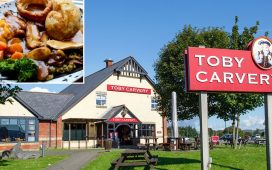Pay growth for workers in Britain has accelerated at the fastest annual rate in more than a decade, despite cracks emerging in the jobs market as employers hold off against hiring new staff ahead of Brexit.
Workers’ pay, including bonuses, picked up to 4% in the three months to July, compared with the same period a year earlier, marking the fastest average wage growth since mid-2008.
Despite the increase in pay growth, the Office for National Statistics (ONS) said hiring had eased in the three months to July, as companies and public sector employers took on 31,000 more workers – below the forecasts of City economists.
In a sign of growing caution among employers as the world economy slows and the Brexit turmoil in Westminster, the number of job vacancies fell to 812,000, the lowest level since the end of 2017.
The number of job openings has fallen in consecutive months since earlier this year, ending a period of steady growth that began in 2012. Economists said the decline in vacancies was the fastest for more than eight years, pointing to a sharper easing in the jobs market than the figures for wage growth might suggest.
Howard Archer, the chief economic advisor to the EY Item club, said the slowdown in job creation suggested “weak economic activity, as well as heightened Brexit and domestic political uncertainties [are] having an increasingly dampening effect on the labour market”.
After adjustment for inflation, annual pay growth rose above 2% for the first time in almost four years, reaching 2.1%, according to the ONS.
Pay growth excluding bonuses, which strips out the volatility of one-off awards, fell slightly to 3.8%.
Despite faster recent pay rises, the average worker in Britain still earns less than they did a decade ago after inflation. An average total pay packet is now worth £502 per week, compared with a peak of £525 in February 2008.
Margaret Greenwood, the shadow work and pensions secretary, said: “The slowdown in job creation is a concern with the current uncertainty over Brexit, and average pay still has not returned to the level it was in 2008. For millions of people, the reality of work is one of low pay and insecurity.”
Workers are, however, gradually beginning to repair the damage from the lost decade in pay growth. Wages have risen faster than inflation for more than a year-and-a-half, in a positive signal for the economy as consumers’ spending power rises.
Unemployment fell back slightly to the lowest level since the mid-1970s, falling to 3.8% in the period.
John Philpott, the director of the Jobs Economist consultancy, said there was a near standstill in private sector job creation, accounting for only 2,000 of the 31,000 additional people in work over the three-month period. Public sector jobs, mostly in the NHS and education, were the prime source of continued market buoyancy.
“These latest figures confirm recent signs of softening in the UK labour market. Recruitment appears to have weakened most noticeably in smaller private sector businesses, though it is unclear to what extent this reflects prolonged uncertainty over Brexit or a broader slowdown in the economy,” he said.
Jobs growth has been driven in recent years by rising numbers of women in work, as well as rapid increases in older workers staying in their roles longer. The ONS said changes in the state pension age for women had resulted in fewer retiring between the ages of 60 and 65.
The estimated employment rate for women has reached 72.1%, marking the joint-highest level since comparable records began in 1971.

The Resolution Foundation said the rise in average pay was encouraging for British workers, but said employment growth was only just managing to keep pace with population increases.
Nye Cominetti, an economic analyst at the foundation, said: “With the UK labour market appearing to have settled into a healthy holding pattern, the key task for policymakers is to keep it there. Most obviously this means avoiding unnecessary economic shocks.”
The chancellor, Sajid Javid, said rising wage growth and government tax cuts were helping households take home more money. He added: “We want to support hardworking people to succeed and provide for their families.”













